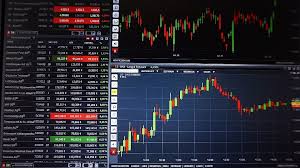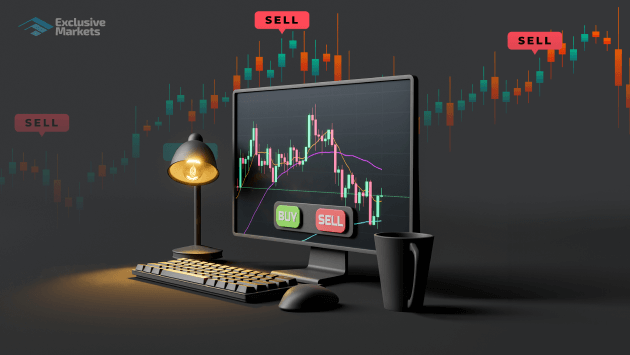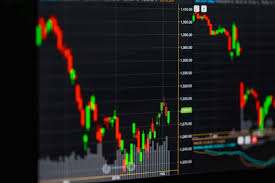
Comprehensive Guide to Forex Trading: Strategies, Tips, and Platforms
Forex trading has evolved into one of the most popular forms of investment, attracting millions of traders worldwide. This guide aims to provide a thorough understanding of Forex trading, catering to both beginners and experienced traders alike. Whether you’re looking for a forex trading tutorial Uzbekistan Brokers or wish to delve into the strategies employed by the professionals, this article will equip you with the necessary knowledge to start your journey.
Understanding Forex Trading
At its core, Forex (foreign exchange) trading involves the exchange of currencies. Unlike stock trading, Forex operates 24 hours a day, five days a week, and is considered the largest financial market globally. The primary goal is to profit from changes in currency values. Here are some foundational concepts of Forex trading:
Currency Pairs
Forex trading always involves trading pairs. The first currency in the pair is known as the base currency, while the second is the quote currency. For example, in the EUR/USD pair, the Euro is the base currency, and the U.S. dollar is the quote currency. Traders speculate on whether the base currency will strengthen or weaken against the quote currency.
Bid and Ask Price
The bid price is what buyers are willing to pay for a currency pair, while the ask price is what sellers are asking for. The difference between these two prices is known as the spread, which is a key factor in determining your trading costs.
Pips and Lots
A pip represents the smallest price movement in a currency pair. In most pairs, it corresponds to 0.0001. Lots refer to the volume of the trade; they can be standard (100,000 units), mini (10,000 units), or micro (1,000 units).
Choosing a Broker
Selecting the right broker is critical to your trading success. Here are key factors to consider:
Regulation
Ensure the broker is regulated by a reputable financial authority. This protects your investment and offers a level of assurance about the broker’s practices.
Trading Platform
The trading platform should be user-friendly and reliable. Platforms like MetaTrader 4 and 5 offer comprehensive tools and features that cater to both novice and expert traders.

Customer Support
Good customer support is essential, especially for new traders. Ensure that assistance is available when needed, whether through live chat, email, or phone.
Forex Trading Strategies
Having a strategy is vital in Forex trading. Here are some popular strategies used by traders worldwide:
Scalping
Scalping involves making numerous trades throughout the day, aiming for small profits from each trade. This strategy requires quick decision-making and efficient execution.
Day Trading
Day traders open and close their positions within the same trading day. The goal is to capitalize on short-term market movements. Traders typically avoid holding positions overnight to minimize risk.
Swing Trading
Swing trading focuses on capturing gains within a specific timeframe, typically from a few days to a few weeks. This strategy allows traders to analyze the market in-depth and gives them more time to make decisions.
Risk Management in Forex Trading
Risk management is crucial in trading. Here are strategies to mitigate risks:
Use Stop Loss Orders
A stop-loss order automatically closes a trade when it reaches a certain level of loss. This helps to limit losses in volatile markets.
Position Sizing
Determine the appropriate size of your trade based on your risk tolerance. Generally, it’s advisable to risk only a small percentage (1-3%) of your total trading capital on a single trade.

Diversify Your Portfolio
Avoid putting all your eggs in one basket. Diversifying your trades across different currency pairs can help balance the risk.
Emotional Control and Discipline
Trading is not just about strategies; it also involves psychology. Emotional control and discipline are key aspects that can significantly affect your trading outcomes.
Avoid Overtrading
Overtrading can lead to significant losses. Stick to your trading plan and avoid making decisions based on emotions or market hype.
Maintain a Trading Journal
Keeping a record of your trades can provide valuable insights. It helps in understanding what works and what doesn’t while allowing for adjustments in your strategies.
Staying Informed
The Forex market is influenced by a variety of factors, including economic indicators, geopolitical events, and central bank decisions. Staying informed about market news and economic reports will enhance your trading decisions:
Economic Calendar
Use economic calendars to track important announcements and events that may impact currency prices. Reports such as GDP, unemployment rates, and inflation are vital indicators.
Follow Financial News
Keeping up with financial news through reputable sources can provide insights into market sentiment and potential market-moving events.
Conclusion
Forex trading offers unique opportunities for profit and risk. By understanding the basics, choosing the right broker, applying effective strategies, managing risk, and maintaining discipline, you can navigate the challenges of Forex trading. This comprehensive guide serves as a starting point; continuous learning and adaptation to market conditions are essential for success in this dynamic environment.
